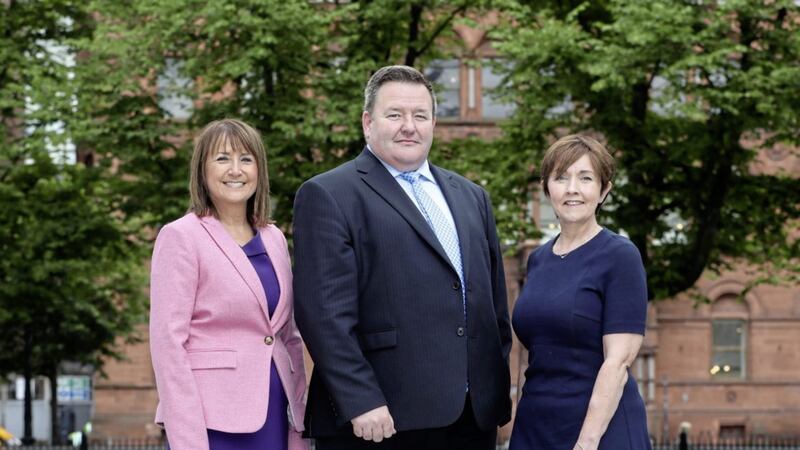OVER a third of Northern Ireland businesses have already or are considering changing their target market due to Brexit according to the latest research.
The Northern Ireland Chamber of Commerce and Industry (NI Chamber) and BDO Quarterly Economic Survey (QES) has revealed that the UK's vote to leave the European Union continues to impact on local business, with nine per cent of members changing their target market and a further 28 per cent contemplating the move.
Eight per cent of members meanwhile have adapted their recruitment plans and seven per cent are looking at making changes to their business location or setting up a presence outside Northern Ireland, with most citing the Republic of Ireland as the most likely alternative.
Around one in two member businesses have not changed or are considering changing their business model following Brexit, with most adopting a 'wait and see' approach as negotiations continue.
One of the key findings to come from the research is an increasing difficulty recruiting staff.
A staggering 81 per cent of manufacturers and 71 per cent of services businesses have experienced problems in relation to recruitment in the last quarter, with respondents stating the main issues being a lack of applicants with the required skills (32 per cent) and not enough applicants with the right attitude or motivation (31 per cent).
This has had a negative impact on firms, with 44 per cent reporting a burden on other employees, while almost one in four reported lower productivity (23 per cent) as a consequence.
Overall, the results showed continued business growth in Northern Ireland driven by a positive performance from the manufacturing sector, with nine of the 14 key balances above the UK average, despite considerable cost pressures, particularly the rising costs of raw materials.
In terms of the services industry there were signs of a slowdown in growth during the second quarter of the year, as 11 of the 14 key balances fell. Fewer businesses reported increased sales and orders in the domestic economy and the export order book also weakened slightly.
There was some good news though as business confidence continues to hold up, while concerns in relation to exchange rates continue to ease, with 39 per cent reporting pressures in the last quarter, compared to 62 per cent at the end of 2016.
Partner at BDO Northern Ireland Brian Murphy said the recruitment difficulties reported by many members was "troubling" and is further compounded by a lack of clarity on the future status of EU labour.
"The strength and depth of our workforce is rightly identified as a core concern. The quality of talent in Northern Ireland has always been a high performing asset, but there are concerns that a skills shortage is evolving."
“While we do not know what lies ahead in the Brexit negotiations, the reality is that we will need a trained, highly skilled and diverse workforce which can flex with the needs of the economy and the priorities of business if we are to thrive in a post-Brexit world," he said.
Chief executive of NI Chamber Ann McGregor added that the figures highlighted three key challenges facing businesses at the moment – inflation, recruitment difficulties and Brexit.
“Added to this, without an Executive in place and talks between Northern Ireland’s two main political parties on hold, Northern Ireland remains outside the critical discussions on Brexit,"
“There are major issues for the local economy to face – the lack of an Executive at Stormont is becoming increasingly frustrating. In what is becoming a tired plea, we ask that our parties resume talks and reach a positive outcome as soon as possible.”








